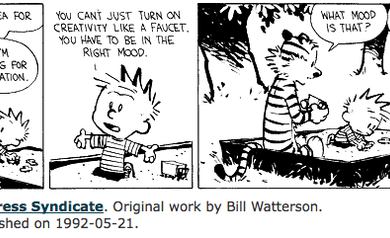Every day we make so many small low-impact decisions. This mental model may just change how you go about making those decisions. I’m not exaggerating when I say that it’s been life changing for me! 😃
What is Satisficing?
The term “satisfice” was coined by a guy called Herbert Simon in 1956 by combining the words satisfy and suffice.
I like this definition:
Satisficing is a decision-making strategy that aims for a satisfactory or adequate result, rather than the optimal solution.
Why would you want to only aim for a satisfactory result?
Aiming for the optimal result (maximizing) on every single decision in our day can waste energy, resources and definitely time! Also, more effort spent doesn’t necessarily mean you’ll get a more optimal result – there can be diminishing returns on effort.
The great Stoic philosopher Seneca said it well:
Nobody works out the value of time, people use it lavishly as if it cost nothing.
Seneca
How to satisfice?
The idea of being able to just choose something satisfactory or “good enough” and not try to optimize everything was quite a revelation to me – it made me realize I waste an embarrassingly large amount of time of trivial decisions!
I remember one example where I wanted to buy a white t-shirt and spent hours trawling Amazon reviews in order to choose the “optimal” one – note that there are over 100,000 white t-shirts listed – what a waste of time and energy. This low-impact decision would have been a great thing to satisfice on.
To satisfice a decision:
1. Set requirements – work out upfront what you’ll need to be satisfied, and how much time/effort/resources you’ll put in
2. Search for an option that meets those requirements
3. Stop searching when you find a satisfactory option and satisfice
4.
There are many opportunities to satisfice in both professional and personal life. Maybe it’s adopting that “done is better than perfect” satisficing mentality on the lower impact tasks at work, or maybe it’s when choosing which movie to watch when you get home, or like me, which brand of t-shirt to buy!
Want to go deeper?
📖 Barry Schwartz’s classic book The Paradox of Choice is a brilliant tirade against “the tyranny of choice” and a great argument for satisficing.
🎦 Or if you prefer video, check out his presentation on The Paradox of Choice here.
👍 The ETTO Principle (efficiency–thoroughness trade-off principle) is an interesting concept with some similarities.
Got comments?
Let me know if you have any thoughts, requests etc you want to share. Otherwise wishing you a very satisficed week my dear Mental Modelers! 🙇






